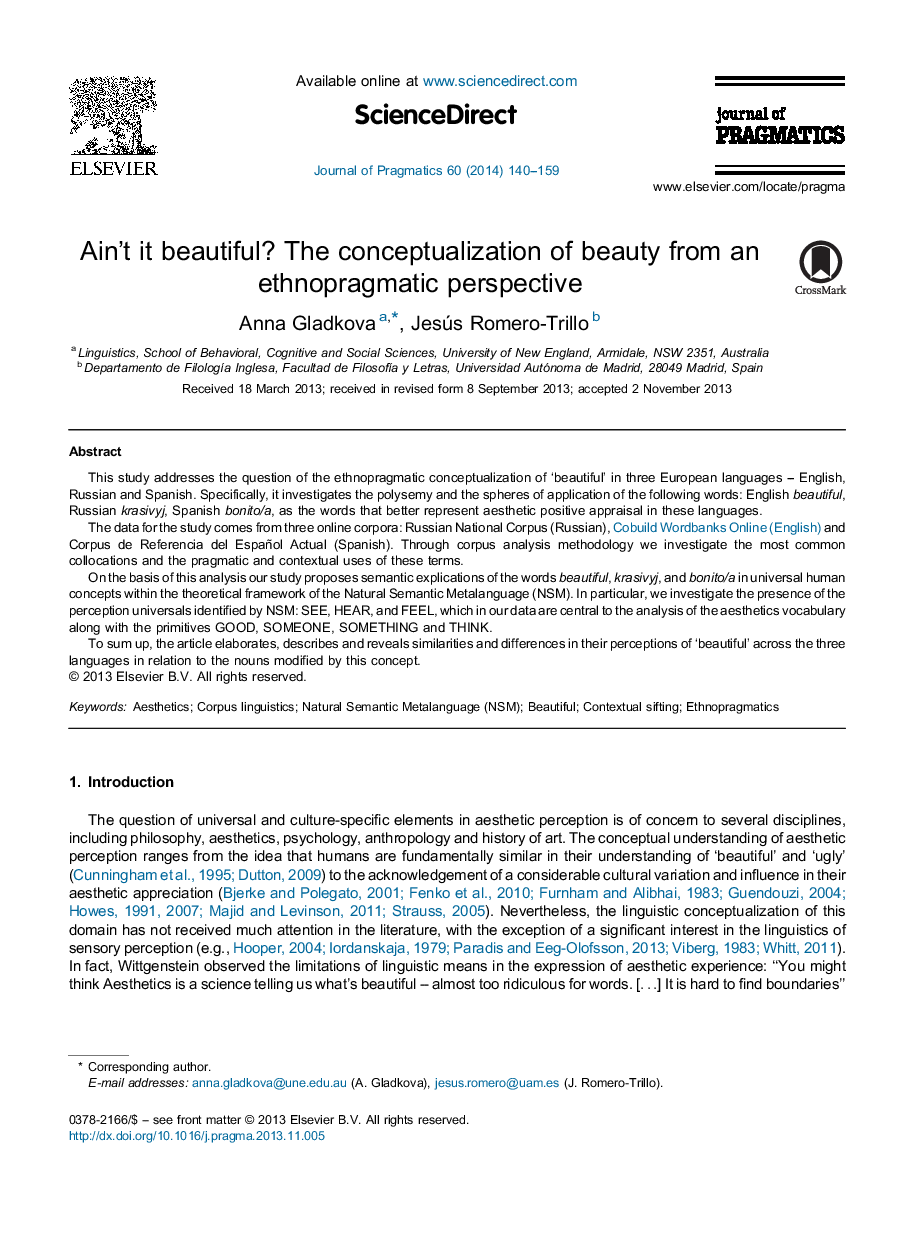| Article ID | Journal | Published Year | Pages | File Type |
|---|---|---|---|---|
| 932804 | Journal of Pragmatics | 2014 | 20 Pages |
•We conduct a semantic and ethnopragmatic analysis of English beautiful, Russian krasivyj, Spanish bonito/a.•We propose semantic explications of the terms in universal human concepts following the Natural Semantic Metalanguage approach.•Through corpus evidence we analyze the domains that characterize the concept of ‘beauty’ in these languages.•We conclude that the different distribution of meaning across different lexical domains suggests the presence of different models of cultural, contextual and cognitive patterns in these three languages.
This study addresses the question of the ethnopragmatic conceptualization of ‘beautiful’ in three European languages – English, Russian and Spanish. Specifically, it investigates the polysemy and the spheres of application of the following words: English beautiful, Russian krasivyj, Spanish bonito/a, as the words that better represent aesthetic positive appraisal in these languages.The data for the study comes from three online corpora: Russian National Corpus (Russian), Cobuild Wordbanks Online (English) and Corpus de Referencia del Español Actual (Spanish). Through corpus analysis methodology we investigate the most common collocations and the pragmatic and contextual uses of these terms.On the basis of this analysis our study proposes semantic explications of the words beautiful, krasivyj, and bonito/a in universal human concepts within the theoretical framework of the Natural Semantic Metalanguage (NSM). In particular, we investigate the presence of the perception universals identified by NSM: SEE, HEAR, and FEEL, which in our data are central to the analysis of the aesthetics vocabulary along with the primitives GOOD, SOMEONE, SOMETHING and THINK.To sum up, the article elaborates, describes and reveals similarities and differences in their perceptions of ‘beautiful’ across the three languages in relation to the nouns modified by this concept.
